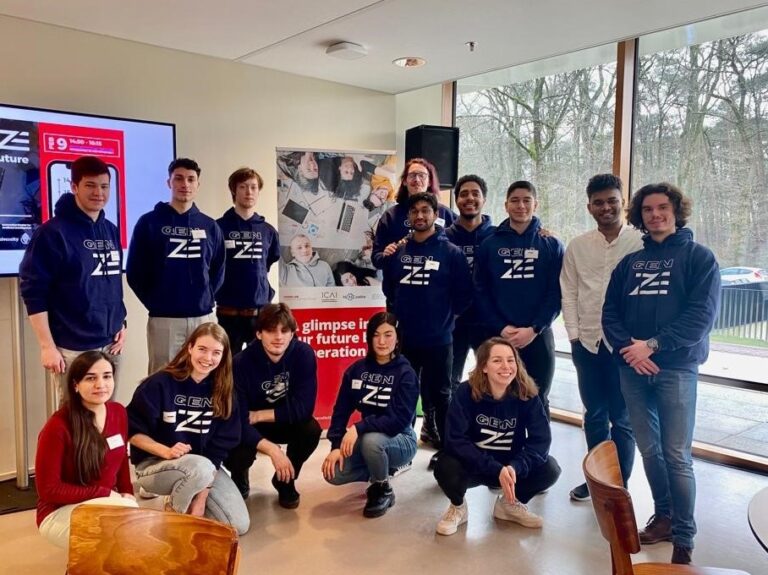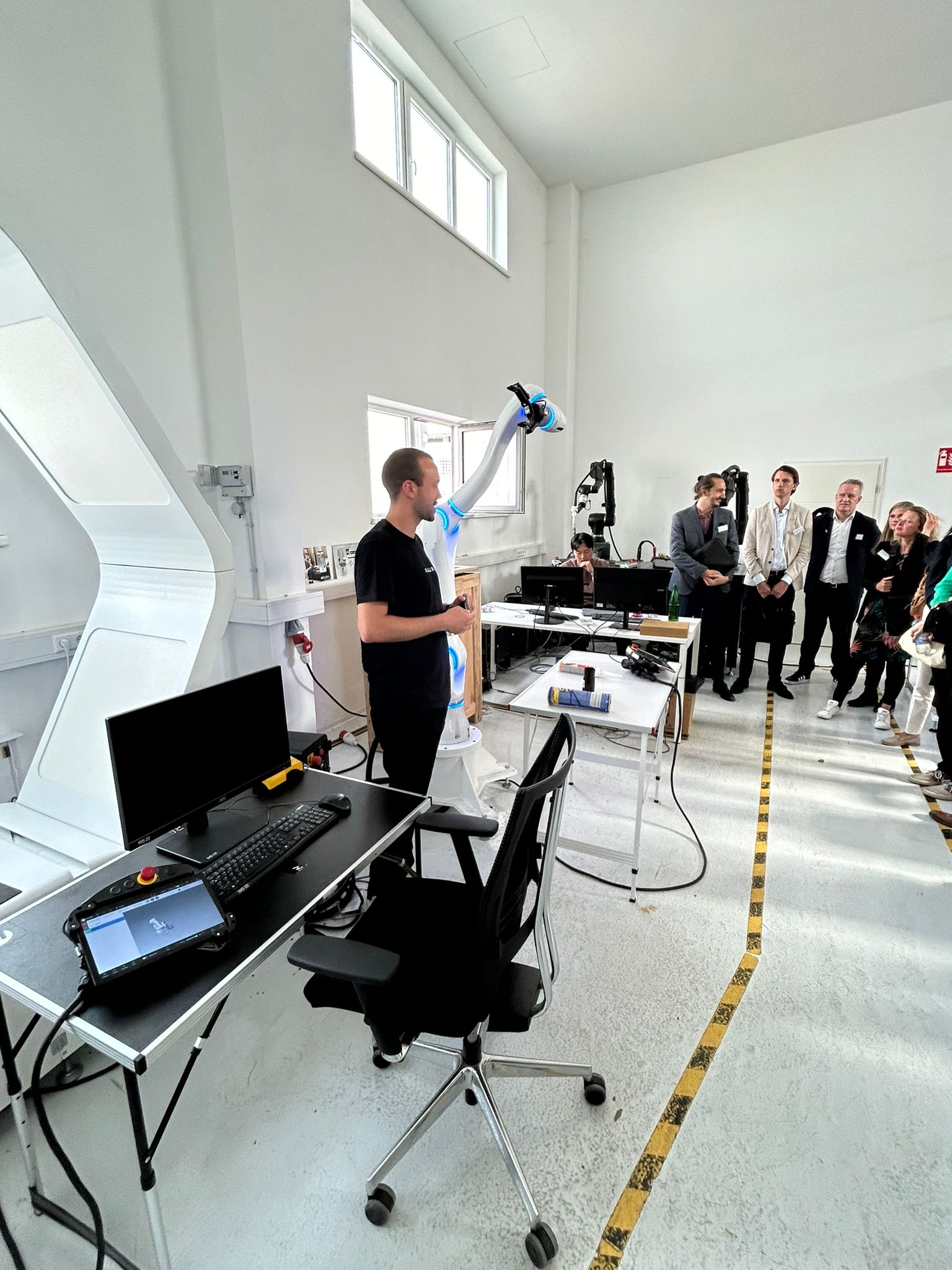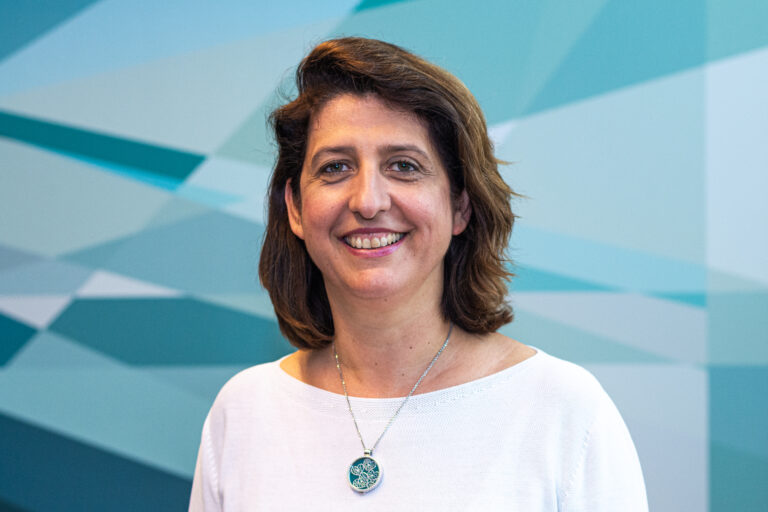They grew up with computers, apps and social media. Anyone from Generation Z (born between 1997 and 2012) generally feels at home in the digital world. You can tell that by how many of that generation perceive Artificial Intelligence (AI). The following is an interview with Susanne Pechtold and Spence van Asperdt, the founders and co-chairs of the Ethically Responsible Innovation Student Collective (ERISC).
They met in one of the lecture rooms of Radboud University, where Susanne and Spence are both taking the Artificial Intelligence course. That they both had clear ideas about the ethical side of AI became clear when they had to write a paper about it.
Avoiding preconceptions
“In my paper, I recommended making sure that the teams involved in AI developments are made up of many different people,” says Susanne. “You really need that diversity to help prevent AI models from inadvertently picking up biases that are in the data they are trained with.”
Give AI rights, or not?
“Yes, I agree with that entirely,” says Spence, “and in my paper, I tried to look a little bit further into the future. Like, what should we do if artificial general intelligence really does arise, if AI becomes just as smart as – and then rapidly much smarter than – humans? Should we then give AI systems rights? Something like human rights, but focused on AI? I eventually concluded that we shouldn’t really be asking that question, and that we shouldn’t have to ask that question if we manage to create human-centric AI that works ethically and reliably.”
According to the ELSA concept
The teacher thought Spence and Susanne’s vision was so interesting and well-substantiated that she recommended they should contact the Netherlands AI Coalition. That led to the idea of creating an ELSA Lab for students who focus on innovations that help achieve an ethical, responsible and human-centric AI. In 2021, Susanne and Spence founded ERISC together, an initiative that fits with the ELSA concept and that twenty fellow students have now joined. “And that’s just the start,” says Susanne. “We’d like to expand to cover several degree programmes and multiple cities so that it really becomes a national platform.”
AI and Generation Z
To raise its profile, ERISC organised the event ‘A Glimpse Into Our Future by Generation Z’ together with the NL AIC, ICAI and Radboud University in February this year. There were presentations and a panel discussion that included the social impact of AI, the ethical and moral dilemmas, and the way Generation Z perceives them. There is a lot that still needs to be said about that, but it was striking how positive that generation was in this discussion.
A tool that can help people progress
“We’re not afraid of AI,” Spence emphasises. “We see it as a technology that can help improve people’s lives. The development of AI can’t be stopped, so we should learn to deal with it. I see it above all as a tool that can help people progress, but we should all make sure that we develop AI applications in a way that means it can be used in a safe and ethically responsible way.”
Interested in joining ERISC?
If you are a student and would like to join ERISC, or if you are interested in the ethical aspects and AI and innovation and would like to start a cooperative effort, please send the ERISC team a message on Instagram, LinkedIn or by e-mail to see how your ideas might fit with those of others. They are also looking for non-AI students, so you can apply from any background.






